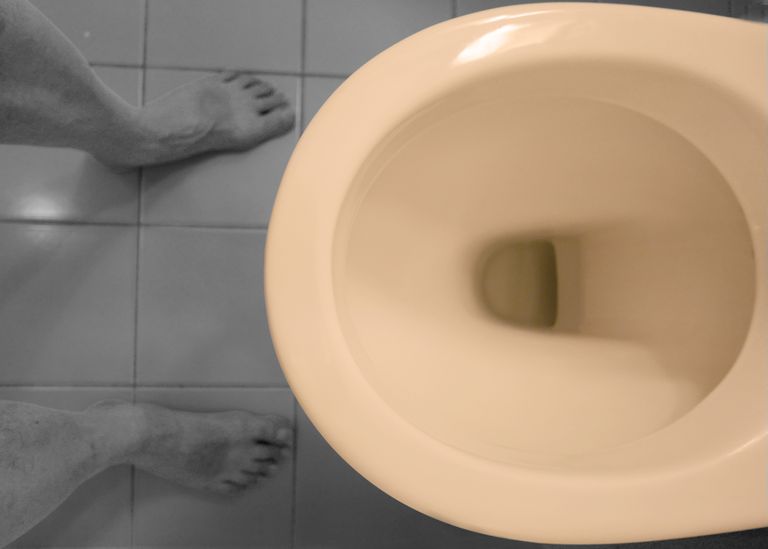Ever see one of those toilets with the dual flush button on top? What about a brick in the water tank of a friend's toilet? Both are attempts to save water—the brick displaces some of the water, meaning smaller flushes, while those buttons let you control the size of your flush—but what if there was another way?
Engineers at Penn State University have come up with an alternate option: a new coating for toilet bowls that essentially keeps your poop from sticking. It sounds gross, but it has the potential to help you cut down your water use and your water bill.
"Our team has developed a robust bio-inspired, liquid, sludge- and bacteria-repellent coating that can essentially make a toilet self-cleaning," Tak-Sing Wong, associate professor of mechanical engineering and biomedical engineering, said in a press statement.
The coating goes by an appropriate acronym, LESS, which stands for Liquid Entrenched Smooth Surface. You can apply it in a two-step spray to a ceramic toilet bowl. Spray one is made up of molecularly grafted polymers that make the foundation smooth and liquid-repellant.
"When it dries, the first spray grows molecules that look like little hairs, with a diameter of about 1,000,000 times thinner than a human’s," Jing Wang, a doctoral graduate from Wong’s lab, said in a press statement.
Next, the second spray adds a thin lubricating layer around those nanoscopic "hairs" that the first spray created. That makes the surface ultra-slippery. The researchers believe the coating will withstand about 500 flushes before another lubricant layer must be sprayed onto the toilet bowl again. Better still, the coating takes less than five minutes to completely cure.
When the team tested the coating on a toilet in the lab, dumping synthetic fecal matter onto it, the fake poop slid right down the sides without sticking. That makes it possible to flush with far less water than before, or, in theory, none at all.
The toilet bowls of the future may not require water, but the drain pipes do. These pipes carry waste from the toilet, through a homeowner's sewer, to the municipal sewer.
From a health perspective, the coating is also beneficial. The team found that the coating also could repel bacteria that spread diseases and odors.
To commercialize the technology, Wong, Wang and two other collaborators, Birgitt Boschitsch and Nan Sun, have created a startup company called spotLESS materials.
"To maximize the impact of our coating technology, we need to get it out of the lab," Wong said.
SOURCE: popularmechanics.com

